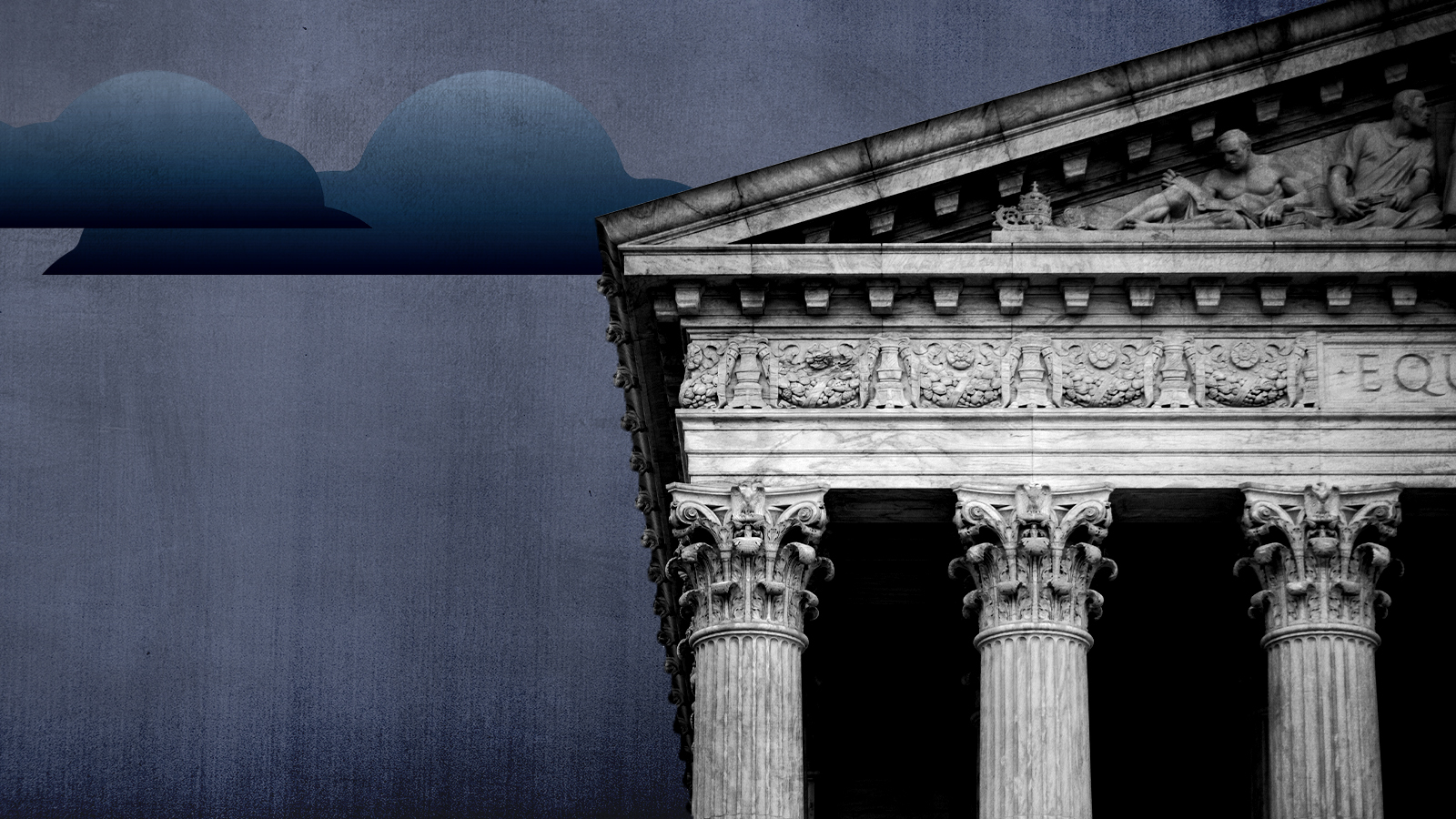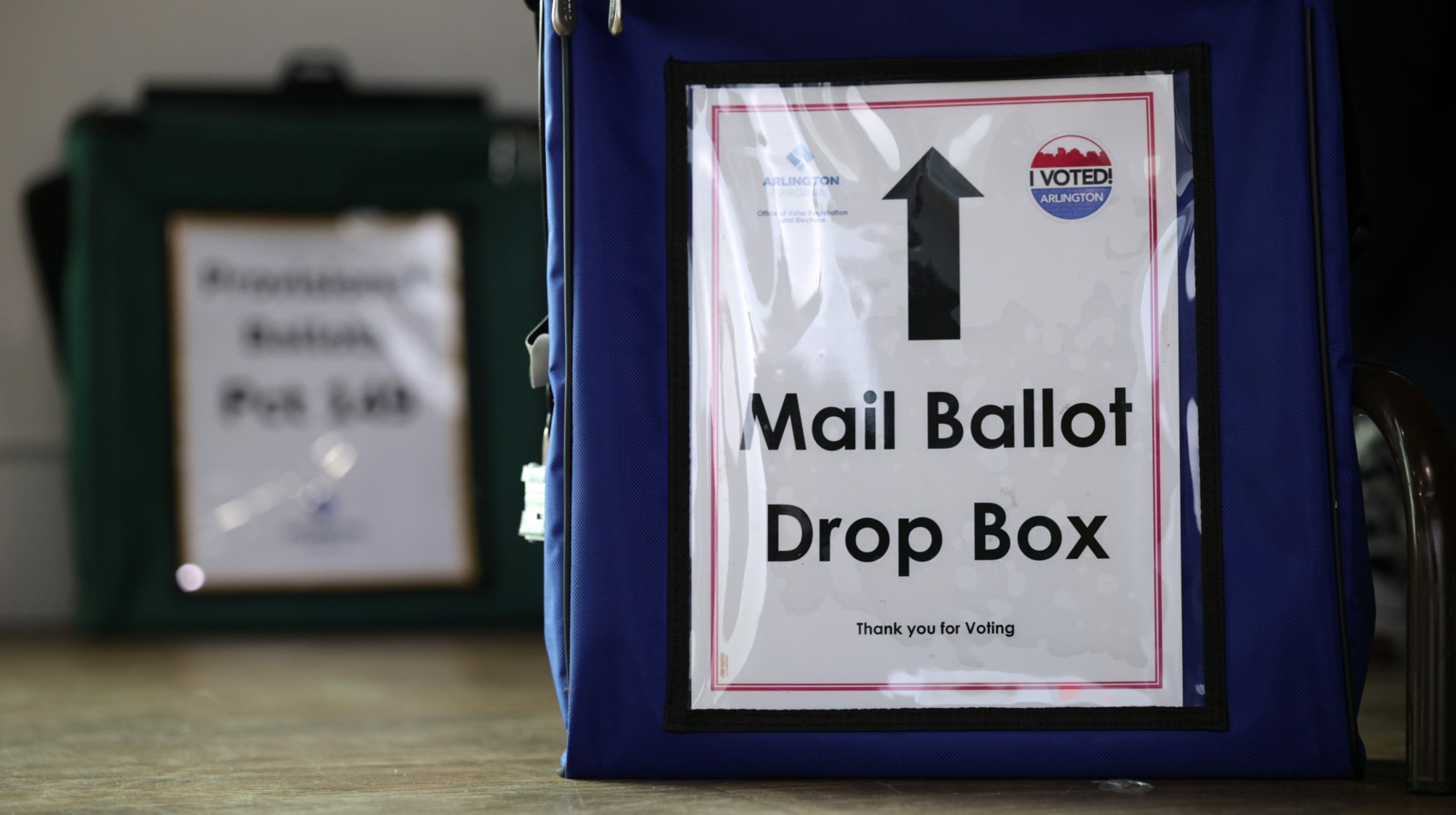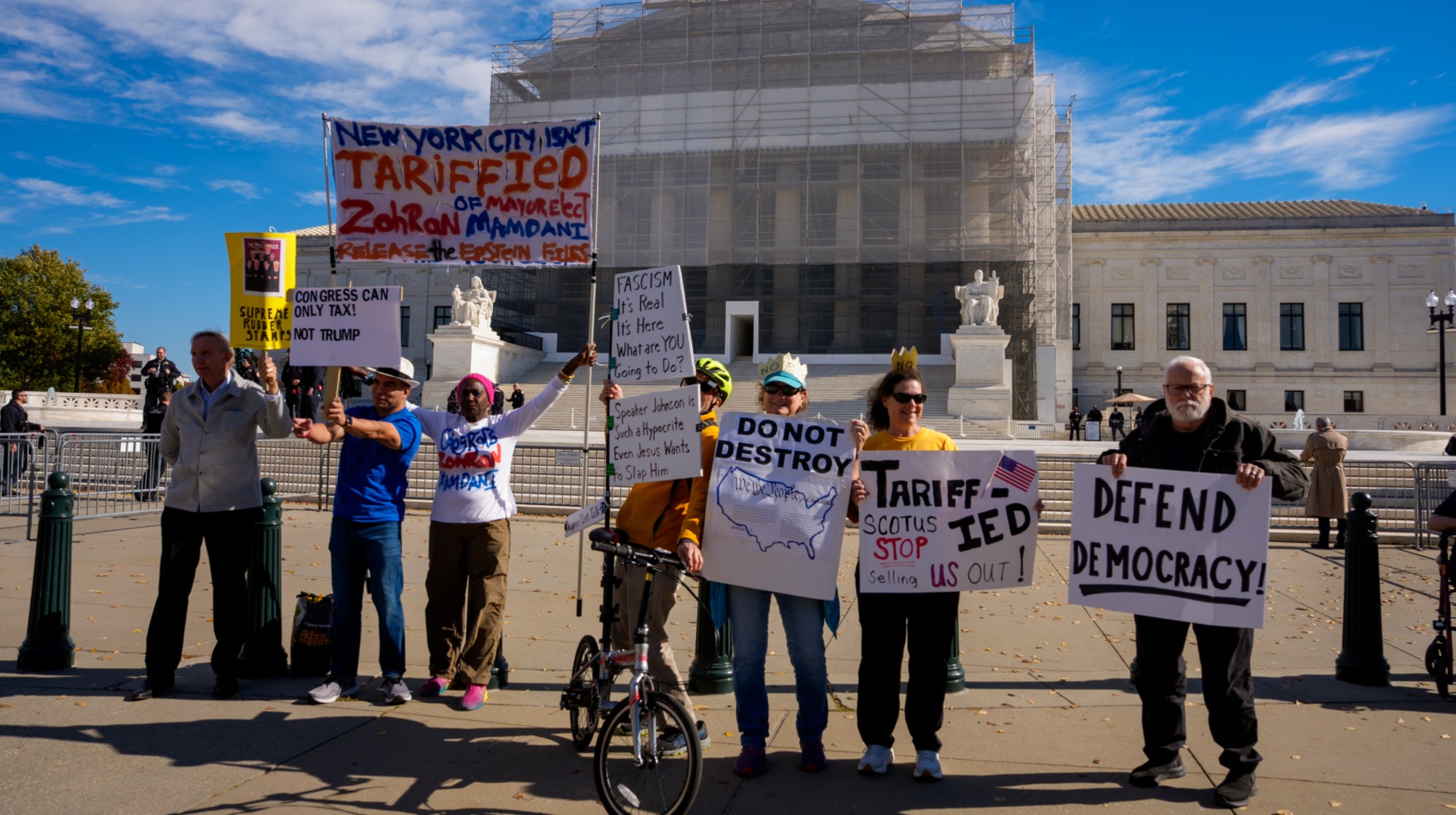Is the Supreme Court's legitimacy at stake in its new term?
The sharpest opinions on the debate from around the web


A free daily email with the biggest news stories of the day – and the best features from TheWeek.com
You are now subscribed
Your newsletter sign-up was successful
The Supreme Court on Monday started a new term that will give the 6-3 conservative supermajority opportunities to leave its mark on more hot-button issues after its landmark decision to overturn Roe v. Wade, which protected abortion rights for a half-century. This term, the court will consider cases involving affirmative action, gay rights, voting, and religion. Polls show that public approval of the court has fallen to historic lows, with a record number of Americans complaining the court is too conservative following former President Donald Trump's appointment of justices Neil Gorsuch, Brett Kavanaugh, and Amy Coney Barrett, who replaced the late liberal icon Ruth Bader Ginsburg. Those critiques could intensify if, as expected, the high court continues its lurch to the right this term by permitting more restrictions on abortion and fewer on guns, and relaxing the line separating church and state.
In a rare display of discord, the justices themselves this summer plunged into the debate about the court's credibility after a term in which it overturned longstanding precedents. "It just doesn't look like law when, you know, the new judges appointed by a new President come in and just start tossing out the old stuff," liberal Justice Elena Kagan said in a public appearance in Rhode Island. Chief Justice John Roberts defended the high court in a separate appearance in Colorado. "Simply because people disagree with an opinion is not a basis for questioning the legitimacy of the court," he said. His fellow conservative Justice Samuel Alito went a step further, saying that implying "the court is becoming an illegitimate institution or questioning our integrity crosses an important line." Is the Supreme Court's legitimacy in danger of crumbling in its new term?
The high court's credibility is on the line
The Supreme Court's legitimacy is in peril, says Fareed Zakaria at CNN, and the justices have only themselves to blame. Time after time, the majority has taken "actions that make the Court seem more partisan, more radical, more out of tune with the country." And this has been going on for decades. The high court's approval rating took a dive just over two decades ago after Bush v. Gore. "That was a nakedly partisan ruling in which conservatives, who had long championed states' rights, suddenly discovered that the federal government had a crucial role in the 2000 election."
The Week
Escape your echo chamber. Get the facts behind the news, plus analysis from multiple perspectives.

Sign up for The Week's Free Newsletters
From our morning news briefing to a weekly Good News Newsletter, get the best of The Week delivered directly to your inbox.
From our morning news briefing to a weekly Good News Newsletter, get the best of The Week delivered directly to your inbox.
The court has only grown "more ideologically predictable — that is, politically partisan — in recent years," with justices "appointed by Republicans now almost always rule in ways that Republicans want them to. Ditto for judges appointed by Democrats. It is all part of the hyper-polarization of American life."
Liberals are just trying to intimidate the majority
"The barrage of liberal attacks nefariously questioning the institutional legitimacy of the court" is part of a careful campaign to "advance a court-packing pipe dream," says Carrie Severino at Fox News. If the left can convince people the court is too conservative, the logic goes, maybe they can get people to support their call to expand the court and fill it with more liberal justices while Democrats are in power. The left also has tried to turn up the heat on the majority with "streams of left-wing protestors who continue to harass the justices at their homes, showing no signs of relenting" while Attorney General Merrick Garland looks the other way.
The protests and the insults have gone on non-stop since "the unprecedented leak of Justice Samuel Alito's opinion in Dobbs v. Jackson Women's Health Organization," telegraphing the majority's intention to overturn Roe and correct "one of the greatest acts of judicial arrogance in history." But it won't work. In the new term, expect the justices to preserve the court's dignity and legitimacy by keeping "their heads down" and respecting "the original meaning of the Constitution," following "the law where it leads."
The partisan court is protecting minority rule
The "zealous band of Republican partisans" that make up the high court's conservative wing isn't defending the Constitution, says Katrina vanden Heuvel in The Washington Post. It is "using a self-selected docket of cases to advance minority rule." A smaller conservative majority gutted the core enforcement mechanism of the Voting Rights Act in 2013, opening "the floodgates of voter-suppression laws across the South" and other red states. Now the right's supermajority is taking up two redistricting cases — Merrill v. Milligan in Alabama, and Moore v. Harper in North Carolina — that could result in rulings protecting "blatant" racial and partisan gerrymandering, weakening what remains of the Voting Rights Act.
A free daily email with the biggest news stories of the day – and the best features from TheWeek.com
"Forget the years of Republican railing about activist judges legislating from the bench," says Ruth Marcus, also in the Post. "This majority is perfectly willing to rewrite laws it doesn't like." Race will be a focus this term with cases on voting rights and affirmative action in college admissions. But the conservative supermajority will take up a host of politically charged issues, including clashes where religious liberty is likely to prevail over gay rights. As the court's new term gets going, the majority appears "heedless" of the "constraints on its power" and the consequences of its actions "on women, on minorities, on public safety, and, most worrisome, on democracy itself." That makes me worried "for the court and for the country whose future it will shape."
Everyone should be against ideology undermining the court
If Hillary Clinton had won the 2016 presidential election, instead of Donald Trump, it's easy to imagine the roles being reversed in the debate about the court's legitimacy, says Richard Wolf in USA Today. Clinton might have renominated former President Barack Obama's pick to replace the late conservative Justice Antonin Scalia, and Merrick Garland would have joined the court. Clinton then could have picked the successors of justices Ginsburg, Stephen Breyer and, "yes, even Republican nominee Anthony Kennedy," possibly. Then there would be a 6-3 liberal majority, and Republicans would be screaming about the elimination of state abortion restrictions, the upholding of strict gun control laws, and the death penalty and political gerrymandering would be on the way out. "If it would be wrong for a court built by Hillary Clinton to go so far left, it's wrong for the one built by Donald Trump to go too far right."
Harold Maass is a contributing editor at The Week. He has been writing for The Week since the 2001 debut of the U.S. print edition and served as editor of TheWeek.com when it launched in 2008. Harold started his career as a newspaper reporter in South Florida and Haiti. He has previously worked for a variety of news outlets, including The Miami Herald, ABC News and Fox News, and for several years wrote a daily roundup of financial news for The Week and Yahoo Finance.
-
 Mixing up mixology: The year ahead in cocktail and bar trends
Mixing up mixology: The year ahead in cocktail and bar trendsthe week recommends It’s hojicha vs. matcha, plus a whole lot more
-
 Labor secretary’s husband barred amid assault probe
Labor secretary’s husband barred amid assault probeSpeed Read Shawn DeRemer, the husband of Labor Secretary Lori Chavez-DeRemer, has been accused of sexual assault
-
 Trump touts pledges at 1st Board of Peace meeting
Trump touts pledges at 1st Board of Peace meetingSpeed Read At the inaugural meeting, the president announced nine countries have agreed to pledge a combined $7 billion for a Gaza relief package
-
 Supreme Court upholds California gerrymander
Supreme Court upholds California gerrymanderSpeed Read The emergency docket order had no dissents from the court
-
 The billionaires’ wealth tax: a catastrophe for California?
The billionaires’ wealth tax: a catastrophe for California?Talking Point Peter Thiel and Larry Page preparing to change state residency
-
 How robust is the rule of law in the US?
How robust is the rule of law in the US?TODAY’S BIG QUESTION John Roberts says the Constitution is ‘unshaken,’ but tensions loom at the Supreme Court
-
 Bari Weiss’ ‘60 Minutes’ scandal is about more than one report
Bari Weiss’ ‘60 Minutes’ scandal is about more than one reportIN THE SPOTLIGHT By blocking an approved segment on a controversial prison holding US deportees in El Salvador, the editor-in-chief of CBS News has become the main story
-
 The ‘Kavanaugh stop’
The ‘Kavanaugh stop’Feature Activists say a Supreme Court ruling has given federal agents a green light to racially profile Latinos
-
 Supreme Court to decide on mail-in ballot limits
Supreme Court to decide on mail-in ballot limitsSpeed Read The court will determine whether states can count mail-in ballots received after Election Day
-
 Trump tariffs face stiff scrutiny at Supreme Court
Trump tariffs face stiff scrutiny at Supreme CourtSpeed Read Even some of the Court’s conservative justices appeared skeptical
-
 Has Zohran Mamdani shown the Democrats how to win again?
Has Zohran Mamdani shown the Democrats how to win again?Today’s Big Question New York City mayoral election touted as victory for left-wing populists but moderate centrist wins elsewhere present more complex path for Democratic Party
